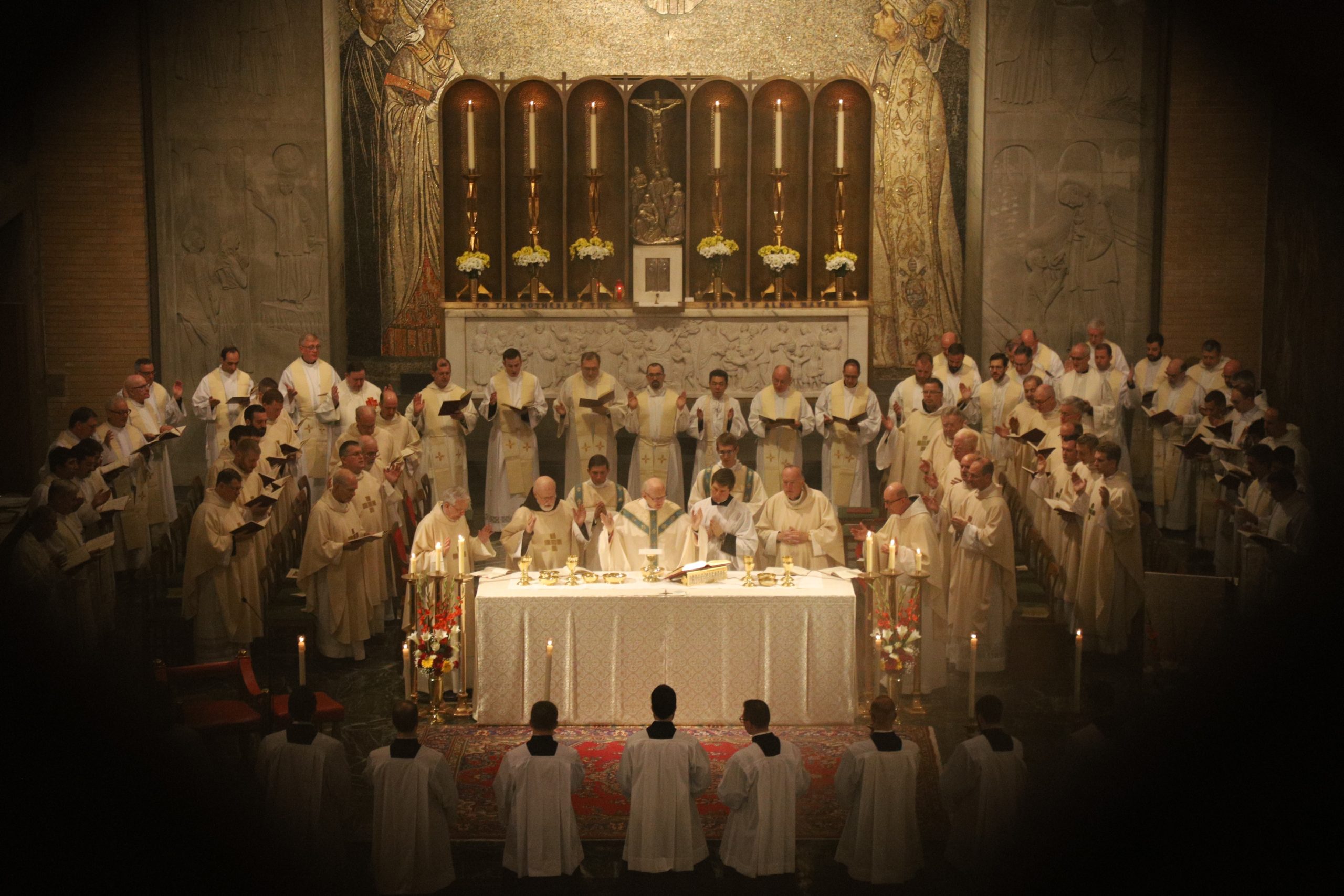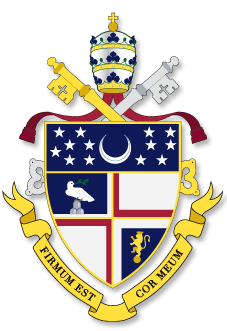Spiritual
The spiritual directors oversee a program of priestly formation based on the Program of Priestly Formation of the United States Conference of Catholic Bishops in accord with the Decree of the Second Vatican Council on The Training of Priests (1965).
The overall College program is designed to foster a deep, intimate relationship with Jesus Christ, faithful priestly discipleship, and clarity in one’s vocation. At the heart of this effort is semi-monthly individual spiritual direction intended to help each seminarian respond effectively to the invitations of the Holy Spirit for continual growth in conversion of mind and heart. This experience of spiritual direction is intended also: 1) to assist the seminarian’s growth in daily prayer and intimate union with God: Father, Son and Spirit, and 2) to lead the seminarian to a healthy self-respect and love, the knowledge and living out of God’s will, and the generous service of others that marks the life of the Diocesan priest.
Daily community celebration of the Eucharist, Morning Prayer and Evening Prayer form the basis of the College’s daily schedule. In addition, each seminarian spends at least thirty minutes a day in personal/mental prayer. Frequent opportunity for Reconciliation encourages regular celebration of the sacrament. An out-of-house confessor is always available one evening a week after dinner, while a house spiritual director is always available before the daily celebration of the Eucharist. Communal Penance services are scheduled for each Advent and Lent. Of course, seminarians may also celebrate the Sacrament of Penance by appointment with their spiritual director or any other priest who is not a member of the external forum faculty.
For each of the four years, the College provides an annual retreat in the Fall at retreat houses outside the city. Monthly conferences, seasonal days of recollection, and annual seminars, along with a series of weekly class presentations provide inspirational, educational, and practical knowledge and skills for the development of holy, effective diocesan priests.
Photos/NAC/nacweb_209.jpg
The spiritual directors oversee a program of priestly formation based on the Program of Priestly Formation of the United States Conference of Catholic Bishops in accord with the Decree of the Second Vatican Council on The Training of Priests (1965).
The overall College program is designed to foster a deep, intimate relationship with Jesus Christ, faithful priestly discipleship, and clarity in one’s vocation. At the heart of this effort is bi-weekly individual spiritual direction intended to help each seminarian respond effectively to the invitations of the Holy Spirit for continual growth in conversion of mind and heart. This experience of spiritual direction is intended also: 1) to assist the seminarian’s growth in daily prayer and intimate union with God: Father, Son and Spirit, and 2) to lead the seminarian to a healthy self-respect and love, the knowledge and living out of God’s will, and the generous service of others that marks the life of the diocesan priest.
Daily community celebration of the Eucharist, Morning Prayer and Evening Prayer form the basis of the College’s daily schedule. In addition, each seminarian spends at least thirty minutes a day in personal/mental prayer. Frequent opportunity for Reconciliation encourages regular celebration of the sacrament. An out-of-house confessor is always available one evening a week after dinner, while a house spiritual director is always available before the daily celebration of the Eucharist. Communal Penance services are scheduled for each Advent and Lent. Of course, seminarians may also celebrate the Sacrament of Penance by appointment with their spiritual director or any other priest who is not a member of the external forum faculty.
For each of the four years, the College provides an annual retreat in September at retreat houses outside the city. Monthly and seasonal conferences, seasonal days of recollection, and annual seminars, along with a series of weekly class presentations provide inspirational, educational, and practical knowledge and skills for the development of holy, effective diocesan priests.
Previous: Pastoral

